
Catalonia Pyrenees: The Majestic Mountain Escape
Nestled in the northeastern corner of Spain, the Catalonia Pyrenees is a breathtaking mountain range that spans over 400 kilometers. Known for its dramatic landscapes, it boasts towering peaks, lush valleys, and pristine rivers. This region is a paradise for nature lovers and adventure enthusiasts alike, offering a wide array of activities such as hiking, skiing, and mountain biking. Each season brings its own unique charm, from the vibrant colors of autumn to the snow-covered wonderland in winter. The Catalonia Pyrenees is also rich in cultural heritage. Scattered throughout the region are charming medieval villages, each with its own history and traditions. Visitors can explore ancient Romanesque churches, quaint stone houses, and bustling local markets. The area is known for its delicious cuisine, featuring hearty stews, fresh cheeses, and locally produced wines. Don't miss the chance to try some traditional Catalan dishes in the cozy mountain restaurants. Beyond its natural beauty and cultural treasures, the Catalonia Pyrenees offers a range of wellness retreats and spas, perfect for those looking to relax and rejuvenate. The region's thermal baths, with their healing properties, have been popular since Roman times. Whether you're seeking adventure, culture, or relaxation, the Catalonia Pyrenees provides an unforgettable experience that will leave you yearning for more.
Local tips in Catalonia Pyrenees
- Pack layers of clothing, as weather conditions can change rapidly in the mountains.
- Rent a car to explore the remote villages and scenic spots that are less accessible by public transport.
- Visit local markets early in the morning for the freshest produce and unique artisanal products.
- Try the regional specialty, escudella i carn d'olla, a traditional Catalan stew, at a local restaurant.
- Book ski passes and equipment rentals in advance during the winter season to avoid long waits.
Catalonia Pyrenees: The Majestic Mountain Escape
Nestled in the northeastern corner of Spain, the Catalonia Pyrenees is a breathtaking mountain range that spans over 400 kilometers. Known for its dramatic landscapes, it boasts towering peaks, lush valleys, and pristine rivers. This region is a paradise for nature lovers and adventure enthusiasts alike, offering a wide array of activities such as hiking, skiing, and mountain biking. Each season brings its own unique charm, from the vibrant colors of autumn to the snow-covered wonderland in winter. The Catalonia Pyrenees is also rich in cultural heritage. Scattered throughout the region are charming medieval villages, each with its own history and traditions. Visitors can explore ancient Romanesque churches, quaint stone houses, and bustling local markets. The area is known for its delicious cuisine, featuring hearty stews, fresh cheeses, and locally produced wines. Don't miss the chance to try some traditional Catalan dishes in the cozy mountain restaurants. Beyond its natural beauty and cultural treasures, the Catalonia Pyrenees offers a range of wellness retreats and spas, perfect for those looking to relax and rejuvenate. The region's thermal baths, with their healing properties, have been popular since Roman times. Whether you're seeking adventure, culture, or relaxation, the Catalonia Pyrenees provides an unforgettable experience that will leave you yearning for more.
When is the best time to go to Catalonia Pyrenees?
Iconic landmarks you can’t miss
La Pedrera - Casa Milà
Discover La Pedrera - Casa Milà, Barcelona's architectural gem, showcasing Antoni Gaudí's innovative design and breathtaking city views.
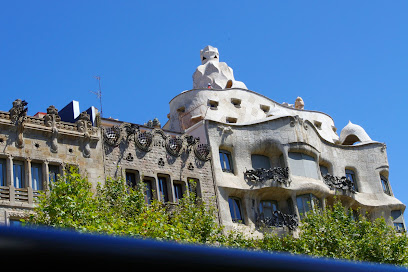
Arc de Triomf
Discover the architectural beauty and cultural significance of the Arc de Triomf, an iconic gateway in the heart of Barcelona, drawing visitors with its rich history.
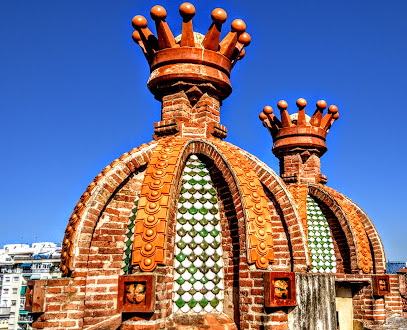
Palau de la Música Catalana
Explore the architectural wonder of Palau de la Música Catalana, a UNESCO World Heritage site in Barcelona, blending history, music, and artistic marvel.
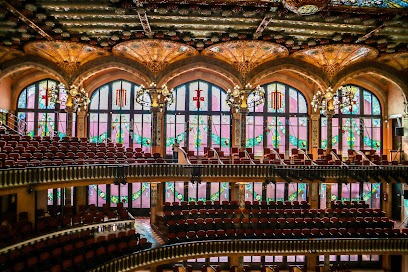
Palau Güell
Explore Palau Güell, a UNESCO World Heritage site showcasing Gaudí's architectural brilliance in the heart of Barcelona.

Casa Vicens Gaudí
Explore the architectural marvel of Casa Vicens Gaudí, a UNESCO World Heritage site and a stunning example of Catalan Modernism in Barcelona's Gràcia district.
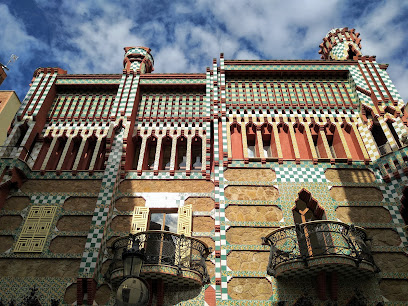
La Seu Vella
Experience the grandeur of La Seu Vella, Lleida's iconic cathedral, offering stunning views and rich history in the heart of Catalonia.
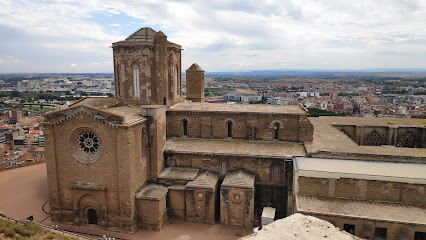
Aigüestortes i Estany de Sant Maurici National Park
Discover Aigüestortes i Estany de Sant Maurici National Park, a stunning natural sanctuary in the Pyrenees, perfect for hiking, wildlife watching, and breathtaking scenery.
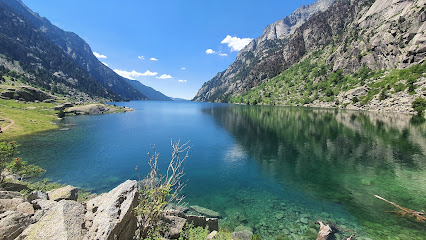
Castell de Cardona
Explore the stunning Castell de Cardona, a historic medieval castle in Barcelona, offering breathtaking views, rich history, and cultural experiences.
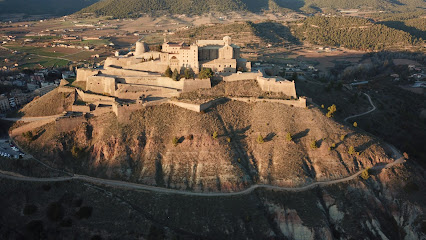
Monument to the Castellers
Discover the Monument to the Castellers in Tarragona, a stunning tribute to the rich tradition of human towers and Catalonian culture.
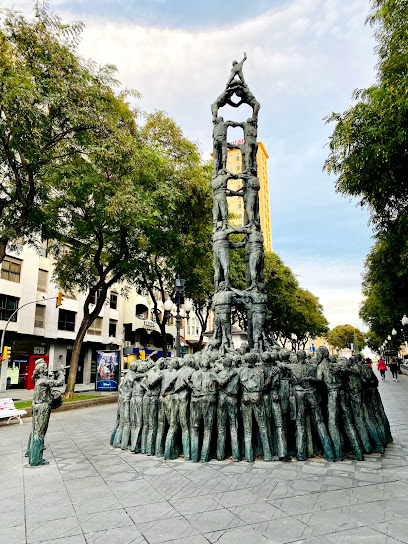
Parc Natural de l'Alt Pirineu
Explore the breathtaking landscapes, diverse wildlife, and endless outdoor adventures at Parc Natural de l'Alt Pirineu, a nature lover's paradise.
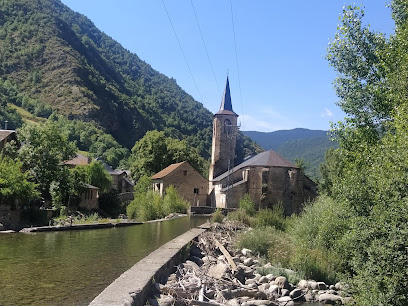
Requesens Castle
Discover Requesens Castle, a stunning medieval fortress in Girona offering breathtaking views, rich history, and captivating architecture, perfect for an unforgettable visit.
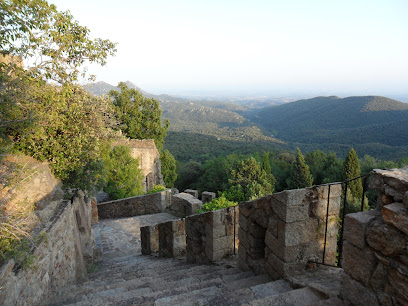
Escalinata monumental
Experience the enchanting Escalinata Monumental in Park Güell, a masterpiece of Gaudí's architectural brilliance, adorned with colorful mosaics and a stunning dragon sculpture.
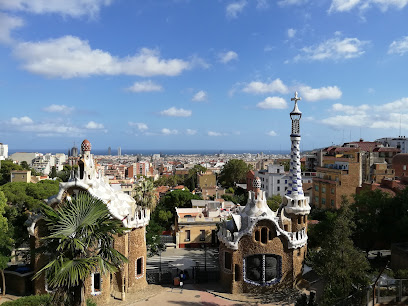
El Pont del Bisbe
Discover the enchanting El Pont del Bisbe, a stunning Gothic bridge in Barcelona's historic Gothic Quarter, showcasing intricate architecture and rich history.
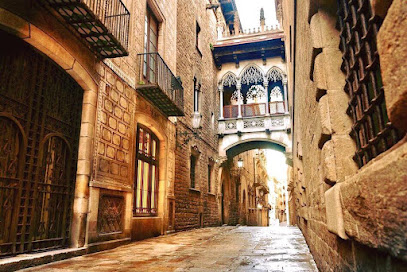
Sant Pere Màrtir
Discover the historical allure of Sant Pere Màrtir, a captivating landmark in Esplugues de Llobregat, offering stunning views and rich cultural heritage.
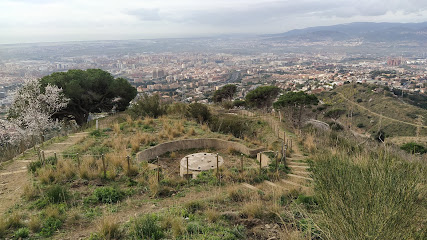
Roman Towers
Explore the Roman Towers in Barcelona, a historical landmark showcasing the city's rich architectural heritage and vibrant cultural history.
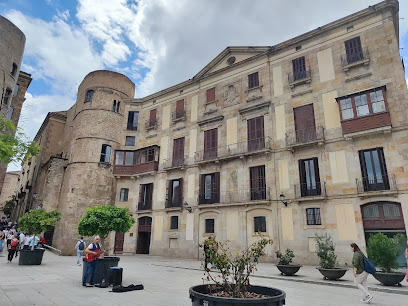
Unmissable attractions to see
Basílica de la Sagrada Família
Experience the breathtaking beauty of Basílica de la Sagrada Familia, a masterpiece of Gaudí's architectural genius in the heart of Barcelona.
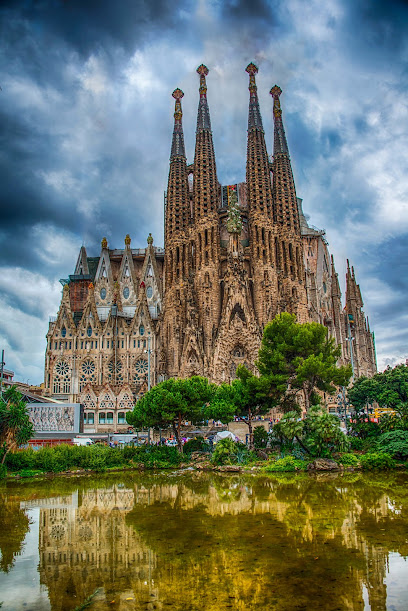
Casa Batlló
Explore the enchanting Casa Batlló in Barcelona, a stunning example of Modernisme architecture by Antoni Gaudí, rich in history and creativity.
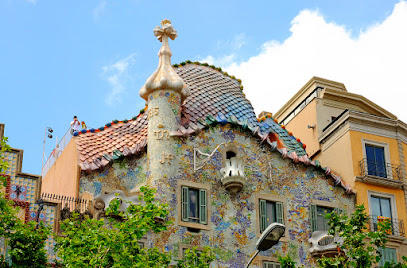
San Sebastian beach
Discover the beauty and vibrancy of San Sebastian Beach, where golden sands meet azure waters, perfect for relaxation and adventure.
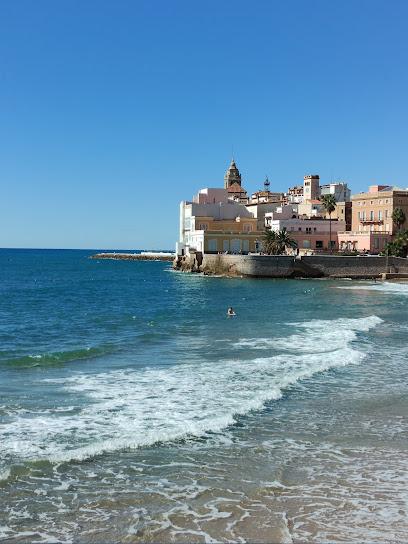
Gardens of Saint Clotilde
Discover the breathtaking beauty of the Gardens of Saint Clotilde, where art meets nature in a serene Mediterranean paradise.
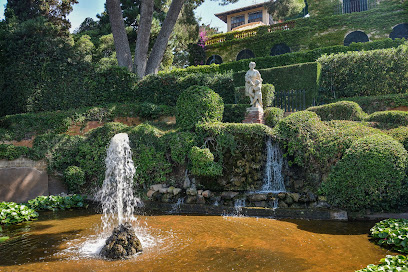
Parc del Garraf
Discover Parc del Garraf: A serene nature preserve near Sitges, perfect for hiking, wildlife watching, and enjoying breathtaking Mediterranean views.
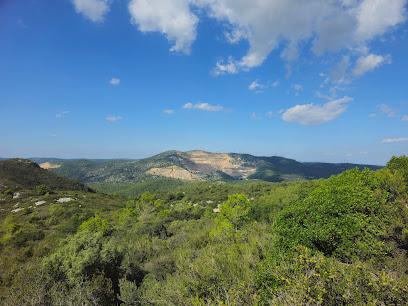
Aigüestortes i Estany de Sant Maurici National Park
Explore the stunning landscapes and rich biodiversity of Aigüestortes i Estany de Sant Maurici National Park, a true natural wonder in the Catalan Pyrenees.
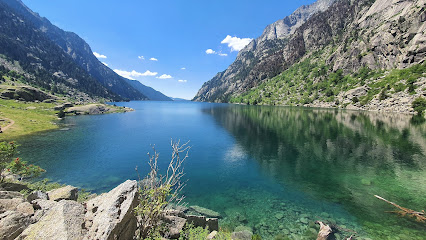
Aran Park - Parc Animalier
Experience the beauty of wildlife at Aran Park - Parc Animalier, a premier animal park in the stunning Pyrenees, perfect for family adventures and nature lovers.
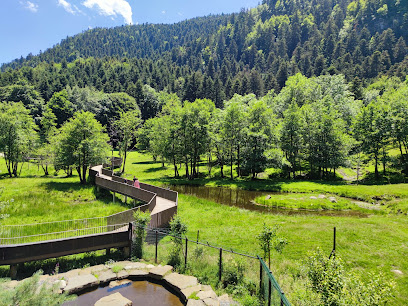
Church of Sant Climent de Taüll
Explore the breathtaking Church of Sant Climent de Taüll, a Romanesque masterpiece nestled in the scenic Pyrenees, rich in history and artistry.
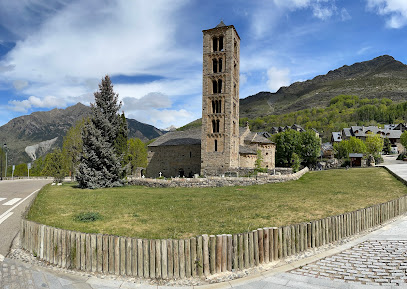
Monestir de Santa Maria de Ripoll
Explore the historic Monestir de Santa Maria de Ripoll, a Romanesque masterpiece nestled in the heart of Girona, offering a glimpse into Catalonia's rich heritage.
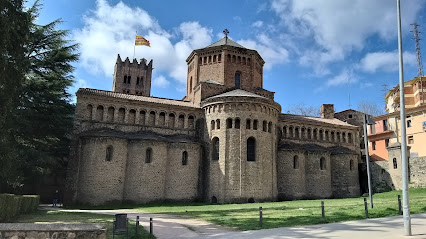
Saut deth Pish
Experience the breathtaking beauty of Saut deth Pish, a stunning waterfall in the heart of the Aran Valley, perfect for nature lovers and adventurers.
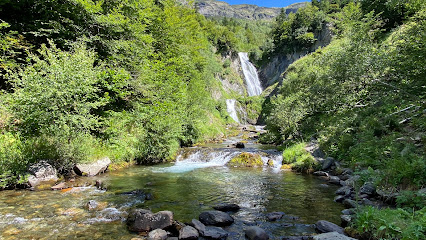
Parc Natural de l'Alt Pirineu
Explore the stunning landscapes and diverse wildlife of Parc Natural de l'Alt Pirineu, a true gem in Spain’s natural heritage.
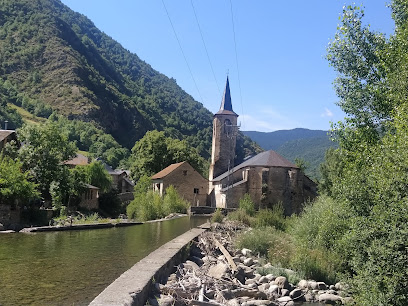
Les Deus Aventura
Experience the thrill of adventure at Les Deus Aventura, a stunning park offering zip-lining, obstacle courses, and breathtaking natural beauty in Sant Quintí de Mediona.
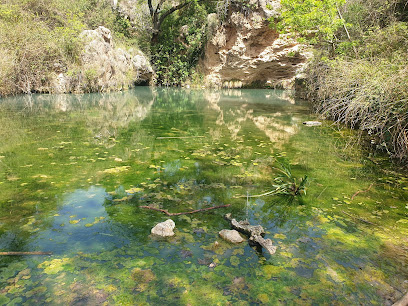
Basílica de Santa Maria
Explore the Basilica de Santa Maria in Vilafranca del Penedès, a stunning fusion of Gothic and Baroque architecture, rich in history and spiritual beauty.
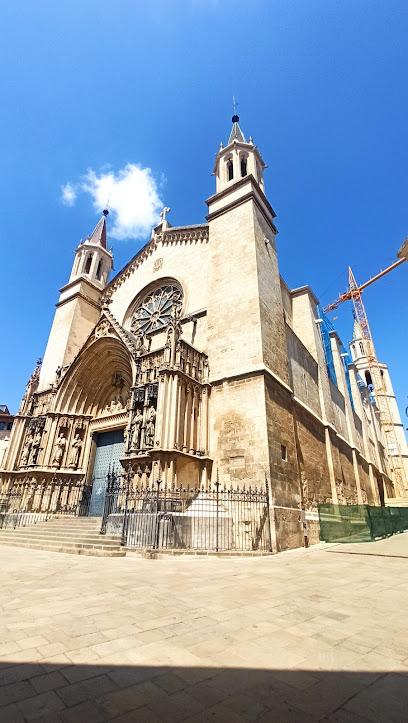
VINSEUM: Museu de les Cultures del Vi de Catalunya
Explore the essence of Catalonia's wine culture at VINSEUM, a museum celebrating the history, art, and science of winemaking in the heart of Vilafranca del Penedès.
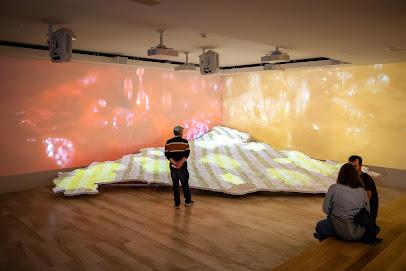
Museu de la Pell d'Igualada i Comarcal d'Anoia
Explore the artistry, history, and craftsmanship of leather at the Museu de la Pell d'Igualada, a unique cultural gem in Catalonia.
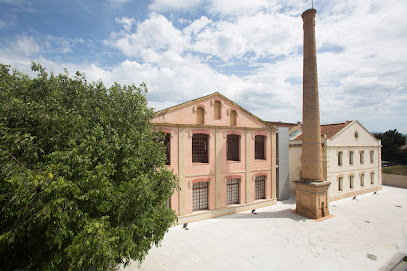
Essential places to dine
El Celler de Can Roca
Discover culinary artistry at El Celler de Can Roca in Girona - where tradition meets innovation in every exquisite dish.
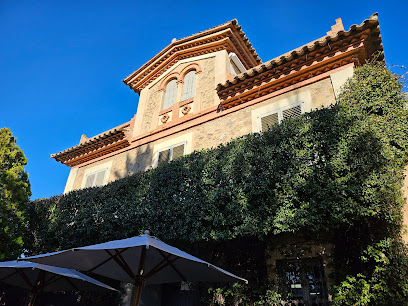
El Trull d'en Francesc
Experience authentic Catalonian and Mediterranean cuisine at El Trull d'en Francesc in Boadella i les Escaules - A true taste of tradition.
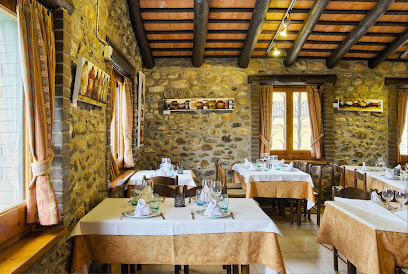
Cal Pau Xich
Experience authentic Mediterranean flavors at Cal Pau Xich, where fresh ingredients meet traditional Catalan hospitality in beautiful Guardiola de Font-Rubí.
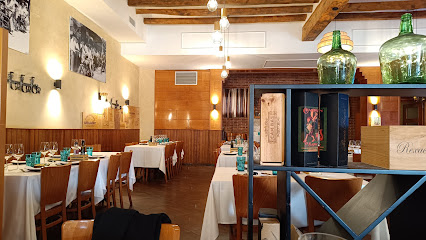
Musiu
Experience authentic Italian and Mediterranean cuisine at Musiu, where every dish is crafted with passion and quality ingredients in Barcelona's Eixample.
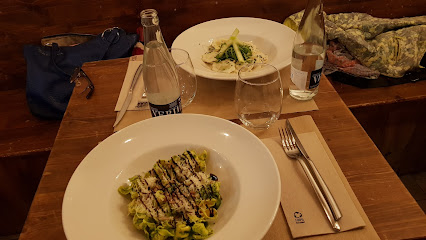
Racó d'en Cesc
Experience the essence of Mediterranean dining at Racó d'en Cesc in Barcelona's Eixample district with authentic Catalonian flavors.
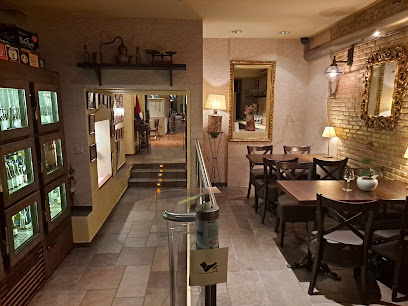
El Celler De La Guardia
Experience authentic Catalan cuisine at El Celler De La Guardia - where tradition meets taste in Sant Pau de la Guàrdia.
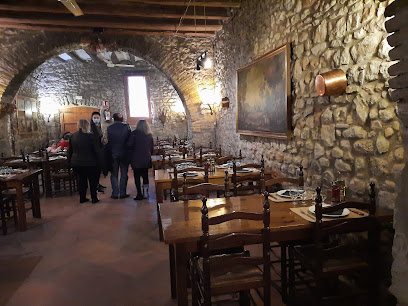
Restaurant Els Cubs
Experience authentic Mediterranean and Spanish cuisine at Restaurant Els Cubs in Òdena - A delightful culinary journey awaits you!
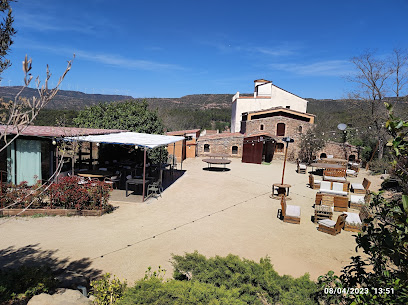
Restaurant Montfalcó
Discover the rich flavors of Mediterranean cuisine at Restaurant Montfalcó - where grilling meets tradition in a charming setting.
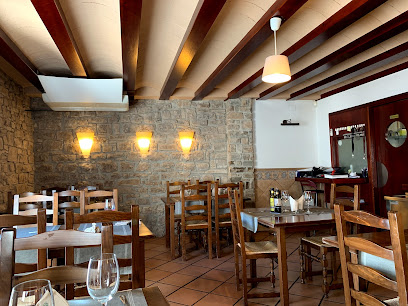
Casa Rufus
Discover authentic grilled cuisine at Casa Rufus in Gessa—where local flavors meet stunning views.
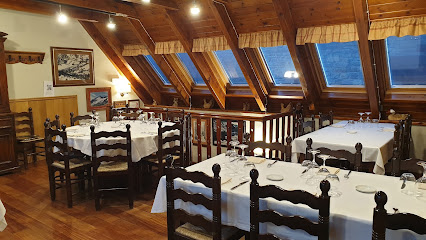
Pirineus 1975
Experience authentic Catalonian cuisine at Pirineus 1975 in Ciutat Vella - where tradition meets contemporary flavor.
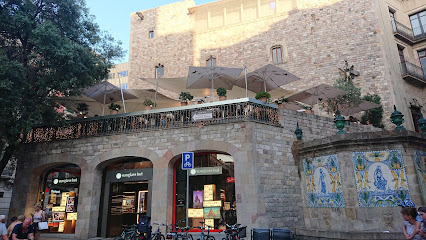
Restaurant labarbacana
Experience authentic Mediterranean cuisine at Restaurant Labarbacana in Santa Coloma de Queralt – a true taste of Tarragona's culinary heritage.
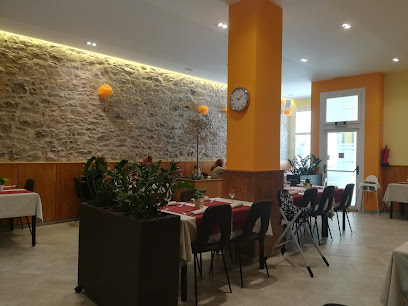
Restaurant Llenegues
Experience authentic Catalonian cuisine at Restaurant Llenegues in Barcelona - where tradition meets taste.
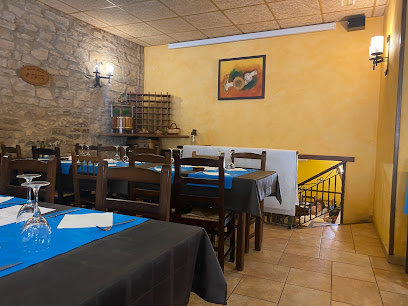
Restaurant Òleum
Experience exquisite Mediterranean dining at Restaurant Òleum in Montjuïc National Palace - where flavor meets breathtaking views.
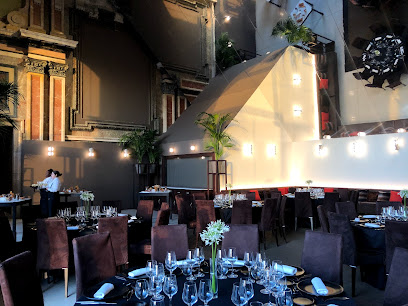
Catalunya amor meu
Discover authentic Mediterranean flavors at Catalunya amor meu in Figueres - a culinary gem showcasing traditional Spanish cuisine.
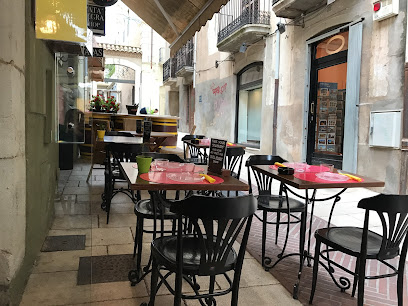
Restaurant El Roure
Experience authentic local cuisine at Restaurant El Roure in Les Pinedes de l'Armengol - where every dish tells a story.
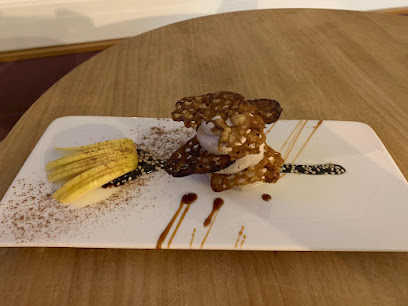
Markets, malls and hidden boutiques
Westfield La Maquinista
Discover shopping, dining, and family entertainment at Westfield La Maquinista, Barcelona's premier shopping destination, where fun meets fashion.
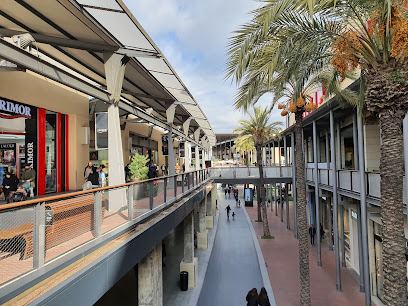
Diagonal Mar
Experience the ultimate shopping and dining at Diagonal Mar, Barcelona's vibrant shopping mall with diverse options for all ages.
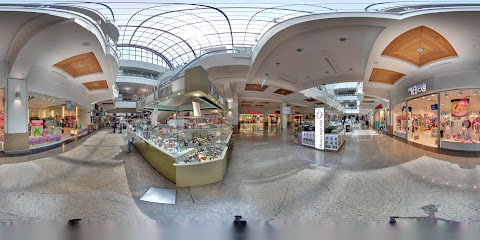
Centro Comercial Splau
Experience the ultimate shopping adventure at Centro Comercial Splau, Barcelona's premier destination for retail therapy and family fun.
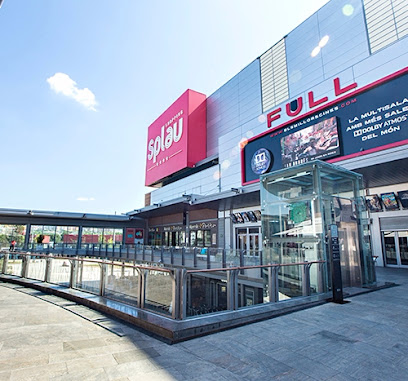
L'illa Mall Diagonal
Discover L'illa Mall Diagonal, Barcelona's premier shopping destination with luxury brands, local boutiques, and diverse dining options.
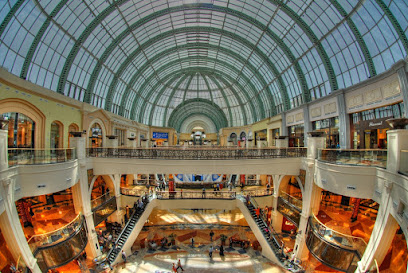
Maremagnum
Experience the ultimate shopping and entertainment destination at Maremagnum in Barcelona, where fun, fashion, and food meet by the waterfront.
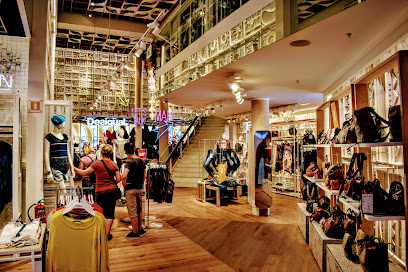
Gran Jonquera
Discover Gran Jonquera, the ultimate outlet shopping mall in Girona, where unbeatable deals and a vibrant atmosphere await every visitor.
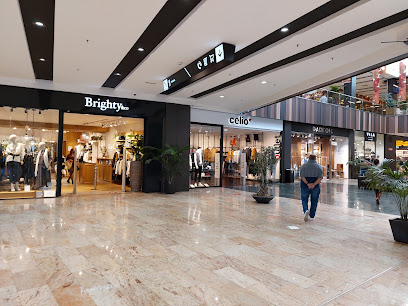
Espai Gironès
Discover Espai Gironès, the ultimate shopping mall in Girona, offering diverse shops, delightful dining, and memorable entertainment experiences.
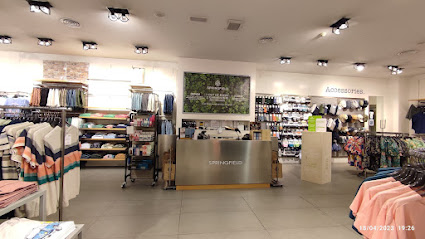
Sant Cugat Shopping center
Experience the best shopping, dining, and entertainment at Sant Cugat Shopping Center in Barcelona, perfect for tourists and locals alike.
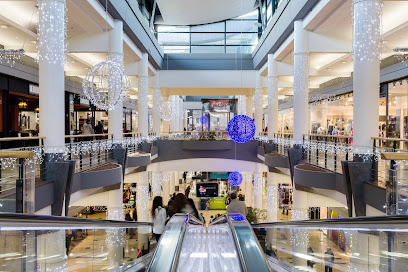
Les Galeries Maldà
Explore Les Galeries Maldà, a vibrant shopping mall in Ciutat Vella, Barcelona, featuring unique concept stores and a lively atmosphere.
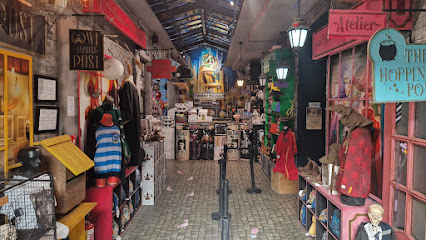
Pyrénées Andorra
Discover the diverse offerings of Pyrénées Andorra, where shopping, dining, and entertainment come together in the heart of Andorra la Vella.
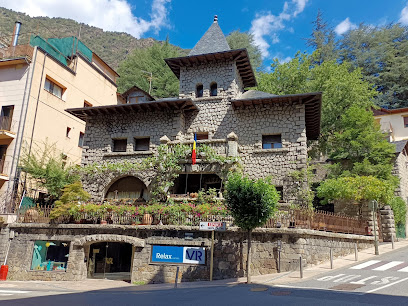
Passeig Comercial El Pallol
Discover a shopping paradise at Passeig Comercial El Pallol, where culture meets modern retail in Reus, Tarragona.
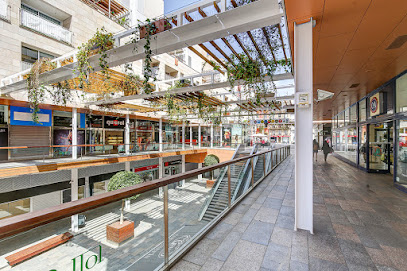
Pyrenees
Discover the breathtaking beauty of the Pyrenees, where majestic mountains meet rich cultural heritage and endless outdoor adventures await.
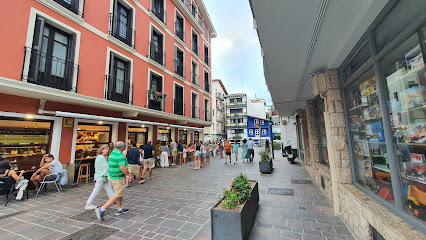
Massimo Dutti Outlet
Explore elegant fashion at Massimo Dutti Outlet in Igualada, Barcelona, where style meets affordability in a chic shopping experience.
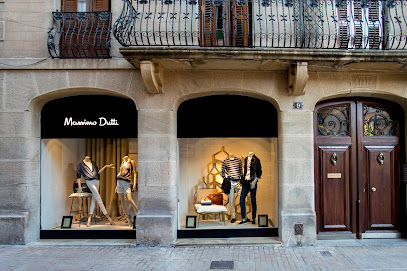
La Manual Alpargatera
Discover the authentic spirit of Barcelona at La Manual Alpargatera, where handcrafted espadrilles meet rich tradition in the heart of Ciutat Vella.
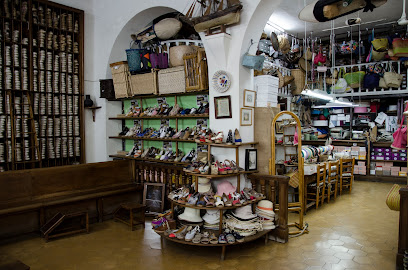
Punto Blanco Igualada Outlet
Explore the stylish and affordable world of fashion at Punto Blanco Igualada Outlet, where quality meets incredible deals in Barcelona.
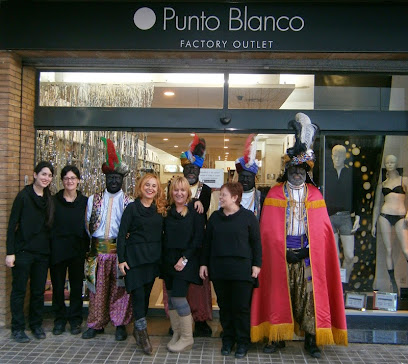
Essential bars & hidden hideouts
Hard Rock Cafè
Dive into the heart of American cuisine and rock music at Hard Rock Café Barcelona, a vibrant hotspot in the city's cultural district.
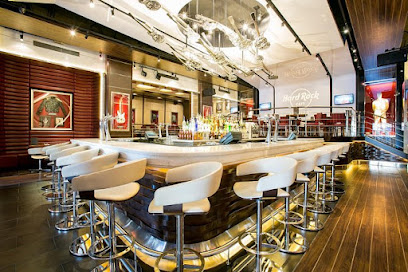
El Bosc de Les Fades
Experience the enchanting ambiance of El Bosc de Les Fades, a whimsical bar and café in Barcelona's historic Ciutat Vella, perfect for relaxation and delight.
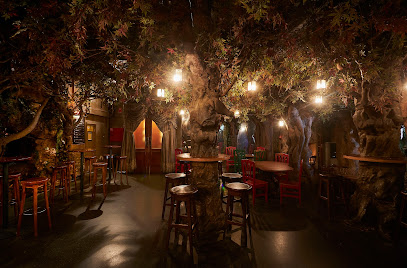
Nevermind
Discover Nevermind in Barcelona: a unique pub merging skate culture and a vibrant atmosphere with an extensive beer selection.
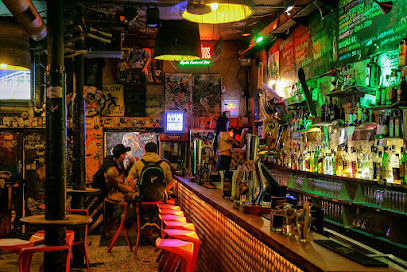
Bobby's Free
Experience the vibrant nightlife of Barcelona at Bobby's Free, a cocktail bar that doubles as a lively night club, offering innovative drinks and unforgettable moments.
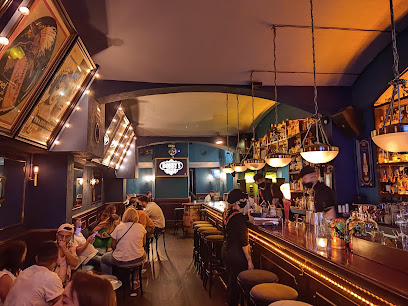
Boadas Cocktails
Experience cocktail perfection at Boadas Cocktails, a stylish bar in Ciutat Vella, Barcelona, renowned for its exquisite drinks and vibrant atmosphere.
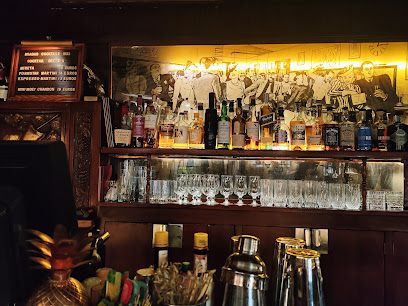
Bar Sincopa
Discover the lively atmosphere of Bar Sincopa in Ciutat Vella, Barcelona, where cocktails and camaraderie meet in a vibrant local setting.
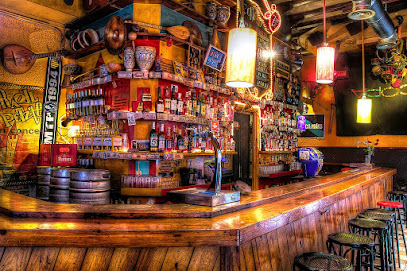
La Whiskeria
Discover La Whiskeria, Barcelona's premier cocktail bar, offering an exquisite selection of whiskies and crafted cocktails in a vibrant ambiance.
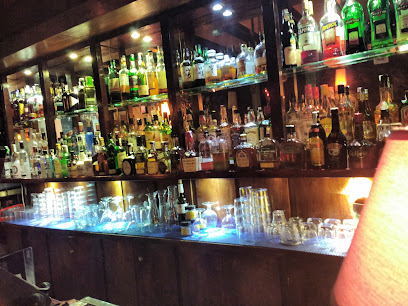
Bar del Pi
Discover the heart of Barcelona at Bar del Pi, where traditional tapas and a lively atmosphere create unforgettable moments.
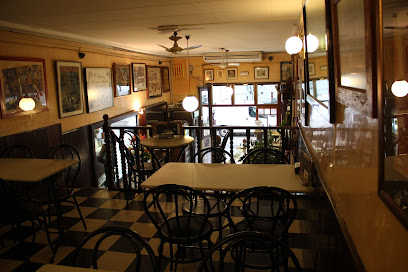
Somnia
Discover Somnia, a vibrant cocktail bar in Ciutat Vella, Barcelona, offering expertly crafted drinks and an inviting atmosphere for all.
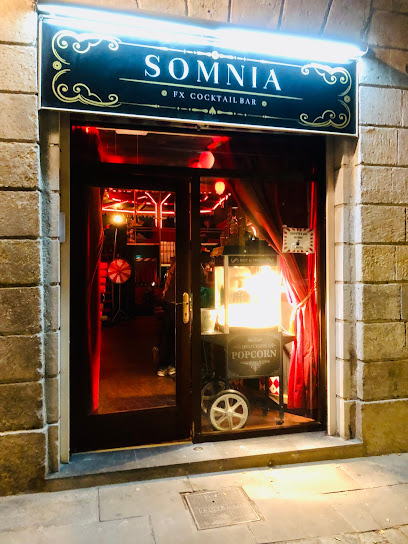
Les Gens Que J'Aime
Discover the vibrant cocktail culture at Les Gens Que J'Aime, where creativity and flavor come together in a chic Eixample setting.
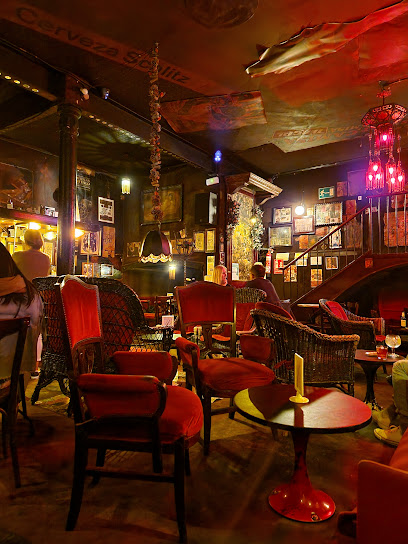
Bloody Mary Cocktail Bar
Experience the vibrant nightlife of Barcelona at Bloody Mary Cocktail Bar, where expertly crafted cocktails meet delicious tapas in a lively atmosphere.
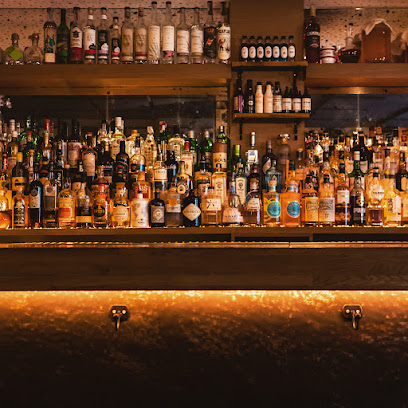
RUBI Gin Bar
Discover RUBI Gin Bar in Barcelona for an unforgettable gin experience amidst vibrant nightlife and a lively atmosphere.
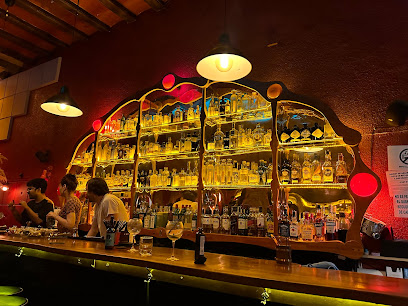
Bar La Roca
Experience the charm of Bar La Roca in Monistrol de Montserrat - a cozy bar and café offering delicious local cuisine and stunning mountain views.
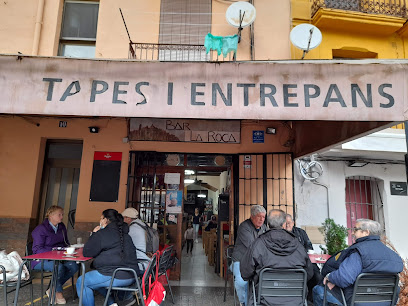
Cafè - Bar Amics de les Arts
Discover the charm of Cafè - Bar Amics de les Arts, where local flavors and a cozy ambiance create the perfect spot for relaxation in Terrassa.
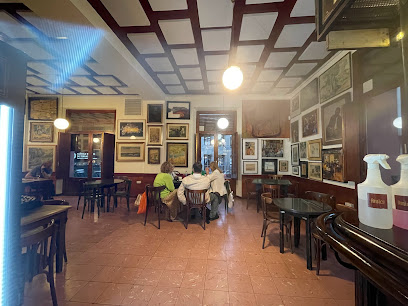
Madame George Lounge Bar
Discover the lively spirit of Barcelona at Madame George Lounge Bar, where innovative cocktails and a vibrant atmosphere await every night.
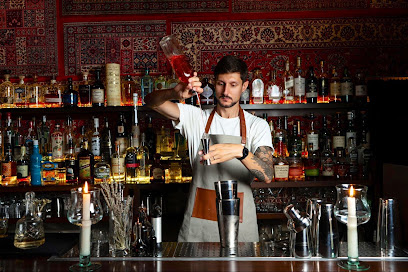
Local Phrases about Catalonia Pyrenees
-
- HelloHola
[oh-lah] - GoodbyeAdéu
[ah-deh-oo] - YesSí
[see] - NoNo
[noh] - Please/You're welcomeSi us plau/De res
[see oos plow/deh res] - Thank youGràcies
[grah-see-ehs] - Excuse me/SorryPerdó/Ho sento
[pehr-doh/oh sehn-toh] - How are you?Com estàs?
[kohm ehs-tahs] - Fine. And you?Bé. I tu?
[beh/ee too] - Do you speak English?Parles anglès?
[pahr-less ahng-lehs] - I don't understandNo entenc
[noh ehn-tenk]
- HelloHola
-
- I'd like to see the menu, pleaseVoldria veure la carta, si us plau
[vohl-dree-ah veh-ooh-reh lah kahr-tah/see oos plow] - I don't eat meatNo menjo carn
[noh mehn-hoh kahrn] - Cheers!Salut!
[sah-loot] - I would like to pay, pleaseVoldria pagar, si us plau
[vohl-dree-ah pah-gahr/see oos plow]
- I'd like to see the menu, pleaseVoldria veure la carta, si us plau
-
- Help!Ajuda!
[ah-hoo-dah] - Go away!Vés-te'n!
[vehs-tehn] - Call the Police!Truca a la policia!
[troo-kah ah lah poh-lee-see-ah] - Call a doctor!Truca a un metge!
[troo-kah ah oon mehg-eh] - I'm lostEstic perdut
[ehs-teek pehr-dooh] - I'm illEstic malalt
[ehs-teek mah-lahlt]
- Help!Ajuda!
-
- I'd like to buy...Voldria comprar...
[vohl-dree-ah kohm-prahr] - I'm just lookingNomés estic mirant
[noh-mehs ehs-teek mee-rahn] - How much is it?Quant val?
[kwahnt vahl] - That's too expensiveAixò és massa car
[ai-shoh ehs mah-sah kahr] - Can you lower the price?Pots baixar el preu?
[pohts by-shahr ehl preh-oo]
- I'd like to buy...Voldria comprar...
-
- What time is it?Quina hora és?
[kee-nah oh-rah ehs] - It's one o'clockÉs la una
[ehs lah oo-nah] - Half past (10)Dos quarts de onze
[dohs kwahrts deh ohn-zeh] - MorningMatí
[mah-tee] - AfternoonTarda
[tahr-dah] - EveningVespre
[vehs-preh] - YesterdayAhir
[ah-eer] - TodayAvui
[ah-voo-ee] - TomorrowDemà
[deh-mah] - 1Un
[oon] - 2Dos
[dohs] - 3Tres
[trehs] - 4Quatre
[kwah-truh] - 5Cinc
[sink] - 6Sis
[sees] - 7Set
[seht] - 8Vuit
[vweet] - 9Nou
[noh-oo] - 10Deu
[deh-oo]
- What time is it?Quina hora és?
-
- Where's a/the...?On és un/el...?
[on ehs oon/ehl] - What's the address?Quina és la direcció?
[kee-nah ehs lah dee-rehk-syoh] - Can you show me (on the map)?Em pots ensenyar (al mapa)?
[ehm pohts ehn-sehn-yahr/ahl mah-pah] - When's the next (bus)?Quan passa el proper (bus)?
[kwahn pah-sah ehl proh-pehr/boos] - A ticket (to ....)Un bitllet (a ...)
[oon bee-yet/ah]
- Where's a/the...?On és un/el...?
History of Catalonia Pyrenees
-
The Catalonia Pyrenees, rich in natural resources, attracted the Romans during their expansion. They established settlements and roads, integrating the region into the Roman Empire. Remnants of Roman bridges and roads are still visible today, especially in the town of Roda de Isábena, which showcases the engineering prowess of the Romans.
-
During the Middle Ages, the Catalonia Pyrenees became a strategic frontier zone. Numerous fortresses and monasteries were built to secure the territory. Notable among them is the Monastery of Santa Maria de Ripoll, founded in the 9th century. This monastery played a crucial role in the Carolingian Reconquest, acting as a center of learning and culture.
-
In the 13th century, the Catalonia Pyrenees provided refuge to the Cathars, a Christian sect persecuted by the Catholic Church. The rugged terrain and remote locations offered a sanctuary for these 'heretics,' particularly in the village of Montségur, which became a stronghold during the Albigensian Crusade.
-
The early 18th century saw the Catalonia Pyrenees embroiled in the War of Spanish Succession. The Treaty of Utrecht in 1713 significantly impacted the region, ceding parts of Catalonia to France. The town of Puigcerdà was a notable site of conflict, and its history reflects the broader geopolitical struggles of the time.
-
The 19th century brought significant changes with the Industrial Revolution. The Catalonia Pyrenees saw the development of mining and textile industries, transforming the economic landscape. Towns like Berga became centers of industrial activity, which also led to the construction of railways and improved infrastructure.
-
The Catalonia Pyrenees were profoundly affected by the Spanish Civil War (1936-1939). The mountainous terrain became a theater for guerilla warfare and resistance against Francoist forces. The region's proximity to France also made it a critical escape route for refugees and Republican fighters.
-
In recent decades, the cultural heritage of the Catalonia Pyrenees has gained international recognition. The Romanesque churches of the Vall de Boí, with their unique architecture and well-preserved frescoes, were declared a UNESCO World Heritage Site in 2000. This recognition underscores the region's historical and cultural significance.
Catalonia Pyrenees Essentials
-
The Catalonia Pyrenees region is accessible via several transportation options. The nearest major international airports are Barcelona-El Prat Airport (BCN) and Girona-Costa Brava Airport (GRO). From these airports, you can rent a car, take a bus, or use train services to reach various towns in the Pyrenees. Barcelona and Girona both offer direct train services to key towns such as Puigcerdà, Ripoll, and La Seu d'Urgell.
-
Once in the Catalonia Pyrenees, renting a car is the most convenient way to explore the region, especially for reaching remote areas and natural parks. Public buses and trains also connect major towns and villages. The Rodalies de Catalunya train service covers several routes within the region. For cycling enthusiasts, numerous bike rental services and well-marked cycling routes are available.
-
The official currency in Spain is the Euro (EUR). Credit and debit cards are widely accepted in most hotels, restaurants, and shops. However, it's advisable to carry some cash for smaller establishments and rural areas. ATMs are available in most towns, but it's wise to withdraw sufficient cash before heading into more remote areas.
-
The Catalonia Pyrenees is generally a safe region for tourists. Standard precautions should be taken, such as avoiding poorly lit areas at night and keeping an eye on personal belongings in crowded places. There are no specific high-crime areas targeting tourists, but it’s always best to stay vigilant and aware of your surroundings.
-
In case of emergency, dial 112 for immediate assistance. This number connects you to emergency services including police, fire department, and medical services. It's recommended to have travel insurance that covers medical emergencies. Local medical facilities are generally well-equipped, but for serious conditions, you may need to travel to larger hospitals in cities like Barcelona or Girona.
-
Fashion: Do dress in layers as the weather can change quickly in the mountains. Avoid overly casual clothing when dining in nicer restaurants. Religion: Do respect local customs and traditions, especially when visiting churches and monasteries. Public Transport: Do be respectful and offer your seat to elderly passengers. Don't eat or drink on public transport. Greetings: Do greet people with a friendly 'Hola' or 'Bon dia' (Good day in Catalan). A handshake is common for initial meetings. Eating & Drinking: Do try local delicacies like 'trinxat' and 'escudella'. Don't refuse hospitality, as it is considered impolite.
-
To experience the Catalonia Pyrenees like a local, visit the local markets where you can buy fresh produce and traditional Catalan goods. Engage with locals, as they are often friendly and willing to share stories about the region’s history and culture. Don’t miss exploring the Romanesque churches and the Aigüestortes i Estany de Sant Maurici National Park. For a unique experience, partake in local festivals such as 'Festa Major' which are celebrated in many towns throughout the year.
Trending Landmarks in Catalonia Pyrenees
-
La Pedrera - Casa Milà
-
Arc de Triomf
-
Palau de la Música Catalana
-
Palau Güell
-
Casa Vicens Gaudí
-
La Seu Vella
-
Aigüestortes i Estany de Sant Maurici National Park
-
Castell de Cardona
-
Monument to the Castellers
-
Parc Natural de l'Alt Pirineu
-
Requesens Castle
-
Escalinata monumental
-
El Pont del Bisbe
-
Sant Pere Màrtir
-
Roman Towers
Nearby Cities to Catalonia Pyrenees
-
Things To Do in Barcelona
-
Things To Do in Lleida
-
Things To Do in Andorra la Vella
-
Things To Do in Escaldes-Engordany
-
Things To Do in Encamp
-
Things To Do in La Massana
-
Things To Do in Pas de la Casa
-
Things To Do in Canillo
-
Things To Do in Arinsal
-
Things To Do in Soldeu
-
Things To Do in Ordino
-
Things To Do in El Serrat
-
Things To Do in Girona
-
Things To Do in Huesca
-
Things To Do in Zaragoza













